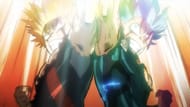The central debate about Katsuki Bakugo's redemption in My Hero Academia focuses on whether his apology sufficed. This perspective fails to grasp the intricate cultural dimensions that Kohei Horikoshi brings to his narrative.
Through Bakugo's story, we understand authentic redemption as it shows us how transformation through sustained selfless behavior beats grand gestures. Bakugo's transformation stands out as an exceptional story when interpreted through Japanese cultural values against the broader context of anime redemption narratives.
Disclaimer: This article reflects the opinions of the writer.
Bakugo’s redemption in My Hero Academia: A nuanced journey of responsibility, Transformation, and sacrifice

Bakugo admitted that his apology couldn't undo past events, but he presented it anyway to support Deku, who needed to hear those words. The importance of this distinction demonstrates an advanced comprehension of Japan's cultural principles concerning responsibility and empathy.
Japanese storytelling approaches redemption through extended demonstration of change via consistent action instead of immediate forgiveness, as Western methods typically advocate. Throughout several months, Bakugo dedicated his time to teaching Deku the use of One For All while accompanying him during perilous events and putting his own life at risk repeatedly.
Also read: My Hero Academia: Dabi not caring about the League of Villains wasn't a lie
Bakugo’s apology wasn’t just for show—it was a real sign of his personal growth. The timing mattered too, as he apologized after already proving he’d changed through his actions, which feels more genuine to Japanese audiences.
In contrast, Endeavor’s quick apology put pressure on others to forgive, which isn’t always fair. Bakugo, on the other hand, helped Deku grow by offering support without crossing emotional boundaries, showing true maturity and cultural awareness.

Horikoshi went beyond traditional redemption requirements, subjecting Bakugo to narrative consequences that far exceeded his childhood bullying. The character nearly died twice for Deku's sake and spent eight years orchestrating a plan to restore Deku's heroic dreams. This level of sustained sacrifice and dedication represents something unprecedented in anime redemption arcs.
While other series feature rivals who commit far worse acts—attempted murder, mass destruction, or systematic cruelty—their redemptions often conclude with a single dramatic gesture or defeat. Bakugo's entire post-Kamino narrative remained shaped by his commitment to making amends. The cultural reception in Japan further validates this interpretation.
Also read: My Hero Academia fans call latest viral Toga fanart her "cutest picture" yet
Japanese audiences celebrated Bakugo's apology precisely because they understood the complete context—the months of protective behavior, self-reflection, and genuine transformation that preceded it. The careful phrasing Horikoshi employed resonated with cultural values that prioritize authentic change over hollow words.
This reception suggests that Western criticism often misses crucial cultural nuances embedded in the storytelling. Even in the epilogue, Bakugo's acceptance of Deku's rejection regarding joining his agency demonstrates the completeness of his transformation.
Also read: I hated the My Hero Academia manga's ending, then Horikoshi fixed it, and now it's my favorite
He accepted Deku's choice gracefully instead of manipulating outcomes to fulfill his own wishes, while Endeavor remains fixated on receiving praise for his achievements.
Conclusion

Bakugo's redemption storyline in My Hero Academia presents an intricate examination of true character development, which goes beyond superficial expressions of remorse or theatrical displays. The transformation from bully to protector involved Bakugo redefining his understanding of power dynamics as well as his approach to vulnerability and compassion.
The long-lasting transformation of his character, combined with culturally authentic elements and profound personal sacrifices, establishes a new benchmark for character development within anime redemption stories.
Rather than asking whether his apology was "enough," we should recognize that Horikoshi crafted something far more meaningful: a portrayal of how people truly change when they commit to becoming better versions of themselves.
Also read
- Deku's journey in My Hero Academia felt pointless, then I realized its hidden meaning
- Shoto Todoroki was never the same after the Sports Festival in My Hero Academia (and it's Horikoshi's biggest mistake)
- My Hero Academia: Vigilantes shows Stain for who he truly is (& all his biggest issues)
